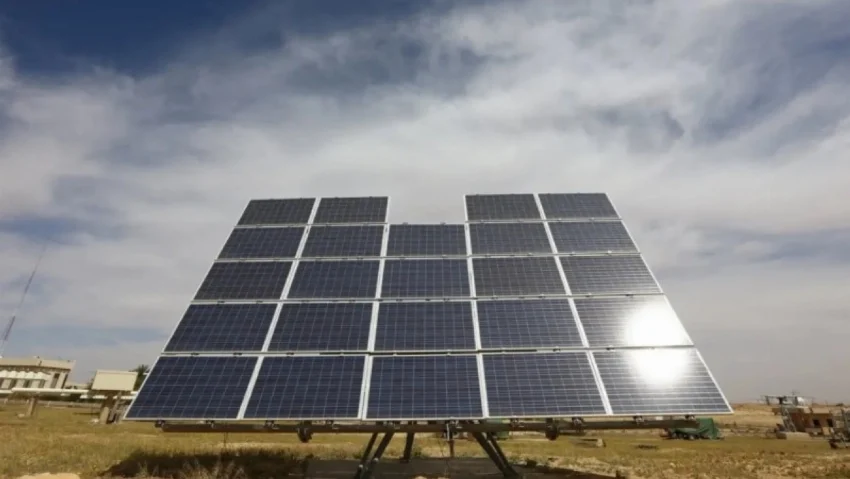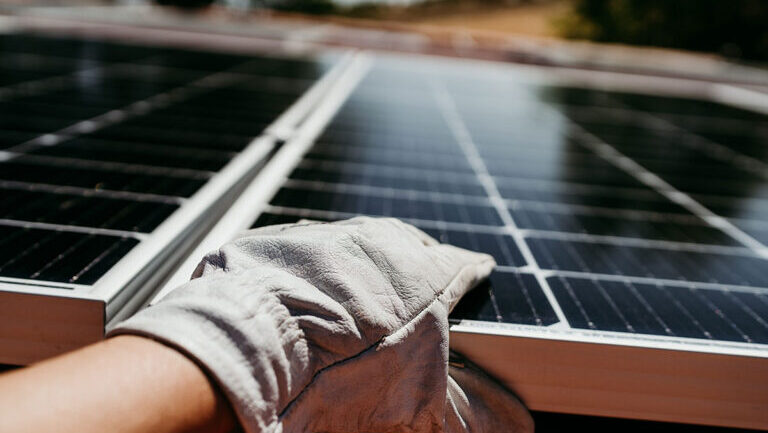A recent survey shows a growing interest among Saudi households in adopting solar energy. According to the 2024 Household Energy Statistics, 40.8% of households in the Kingdom expressed their desire to use solar power as a primary energy source at home. This shift reflects not only the pursuit of cost savings but also a growing awareness of sustainable living and environmental responsibility.
With rising energy costs and a global emphasis on renewable energy, Saudi families are increasingly exploring alternatives to conventional electricity. Solar energy offers an opportunity to reduce dependence on the national grid while promoting cleaner and more efficient energy usage.
Increasing Focus on Energy Efficiency
The survey also highlights that energy efficiency is a top priority for Saudi households. About 91.5% of respondents said they place strong importance on reducing electricity consumption, and 91.9% reported following energy-saving guidelines when using electrical appliances.
Many families are adopting simple yet effective practices such as switching off unused lights, using energy-efficient lighting, and optimizing appliance usage. These efforts not only lower electricity bills but also contribute to a more sustainable lifestyle. The strong focus on energy efficiency shows that Saudi households are ready for more advanced energy solutions like solar power.
Willingness to Upgrade Appliances
Another key finding is that many households are willing to replace older appliances with more efficient alternatives. Approximately 56.6% of families expressed interest in upgrading outdated electrical devices to energy-saving models.
Modern appliances, such as air conditioners, refrigerators, and washing machines, consume significantly less electricity while delivering better performance. The willingness to invest in these devices indicates that households are ready to embrace a broader shift toward energy-efficient living, which complements the adoption of solar energy.
Current Electricity Consumption
Residential electricity consumption in Saudi Arabia reached 161,207 gigawatt-hours. The survey also shows that access to electricity is nearly universal, with 100% of the population having reliable access to power.
While electricity is widely available, households are exploring solar energy to reduce costs and adopt a more sustainable lifestyle. Solar energy can provide a reliable supplement to conventional electricity, especially in regions with high energy consumption or increasing electricity prices.
Cooking and Gas Usage in Saudi Homes
Gas remains the primary source of energy for cooking in Saudi households. About 86.4% of families use gas for cooking, while 13.4% rely on electricity. Most households, around 97%, use gas cylinders, while only 2.7% use gas tanks. Iron cylinders are the most common, used by 93.9% of households, while 5.6% use fiber cylinders.
These figures indicate that while Saudi families are open to modern energy solutions, traditional energy sources like gas continue to play an essential role in daily life. Any transition to solar energy would likely complement existing energy systems rather than replace them entirely.
Factors Driving Interest in Solar Energy
Several reasons explain why Saudi households are increasingly interested in solar power:
Cost Savings: Solar energy reduces monthly electricity bills and can provide long-term financial benefits for households with high energy consumption.
Sustainability: Many families are motivated by environmental concerns and want to reduce their carbon footprint. Solar energy is a clean and renewable alternative.
Energy Independence: Generating electricity at home reduces reliance on the national grid and protects households from price fluctuations.
Technological Advances: Modern solar panels are more efficient, durable, and easier to install, making them an attractive option for residential use.
These factors create a strong foundation for the wider adoption of solar energy across Saudi Arabia.
Challenges to Solar Adoption
Despite the growing interest, there are some challenges that households may face:
High Initial Costs: Installing solar panels requires significant upfront investment, which can be a barrier for some families. Financing options and government incentives can help make solar energy more accessible.
Space Requirements: Solar panels need adequate rooftop space, which may not be available in all homes. Innovative solutions, such as shared or community solar systems, can help overcome this limitation.
Maintenance and Awareness: Households need guidance on maintaining solar systems and maximizing efficiency. Awareness campaigns and technical support are essential for long-term success.
Addressing these challenges can help accelerate solar energy adoption and ensure households get the full benefits of renewable energy.

Government Support and Initiatives
Saudi Arabia has been actively promoting renewable energy as part of its Vision 2030 goals. Several initiatives support residential solar energy adoption, including:
Incentives and subsidies for solar panel installation
Financing programs to reduce the upfront cost for households
Public awareness campaigns highlighting the benefits of solar energy
Partnerships with private companies to provide affordable and reliable solar solutions
These measures aim to make solar energy more accessible to families, reduce dependency on fossil fuels, and support national sustainability goals.
Future of Solar Energy in Saudi Homes
With 40.8% of households already showing interest, the future of solar energy in Saudi Arabia looks promising. As technology improves and costs decrease, more families are likely to adopt solar panels and energy-efficient appliances.
The integration of solar energy into homes could result in reduced electricity demand from the national grid, lower household energy costs, and decreased environmental impact. It also strengthens energy security and aligns with the Kingdom’s commitment to sustainable development.
Conclusion
The survey reveals a clear trend: Saudi households are increasingly aware of energy efficiency and are open to adopting solar energy. With nearly 41% of families expressing interest in using solar power, the Kingdom is moving toward a more sustainable and cost-effective energy future.
The combination of government support, technological advancements, and growing environmental awareness positions solar energy as a viable solution for residential power needs. By embracing solar energy, Saudi households can enjoy lower energy bills, greater independence, and a greener future, contributing to the nation’s broader sustainability goals.
Do follow Gulf Magazine on Instagram.
Also Read – Al Moosa Health Awards $175 Million Contract for Al Khobar Hospital Project



